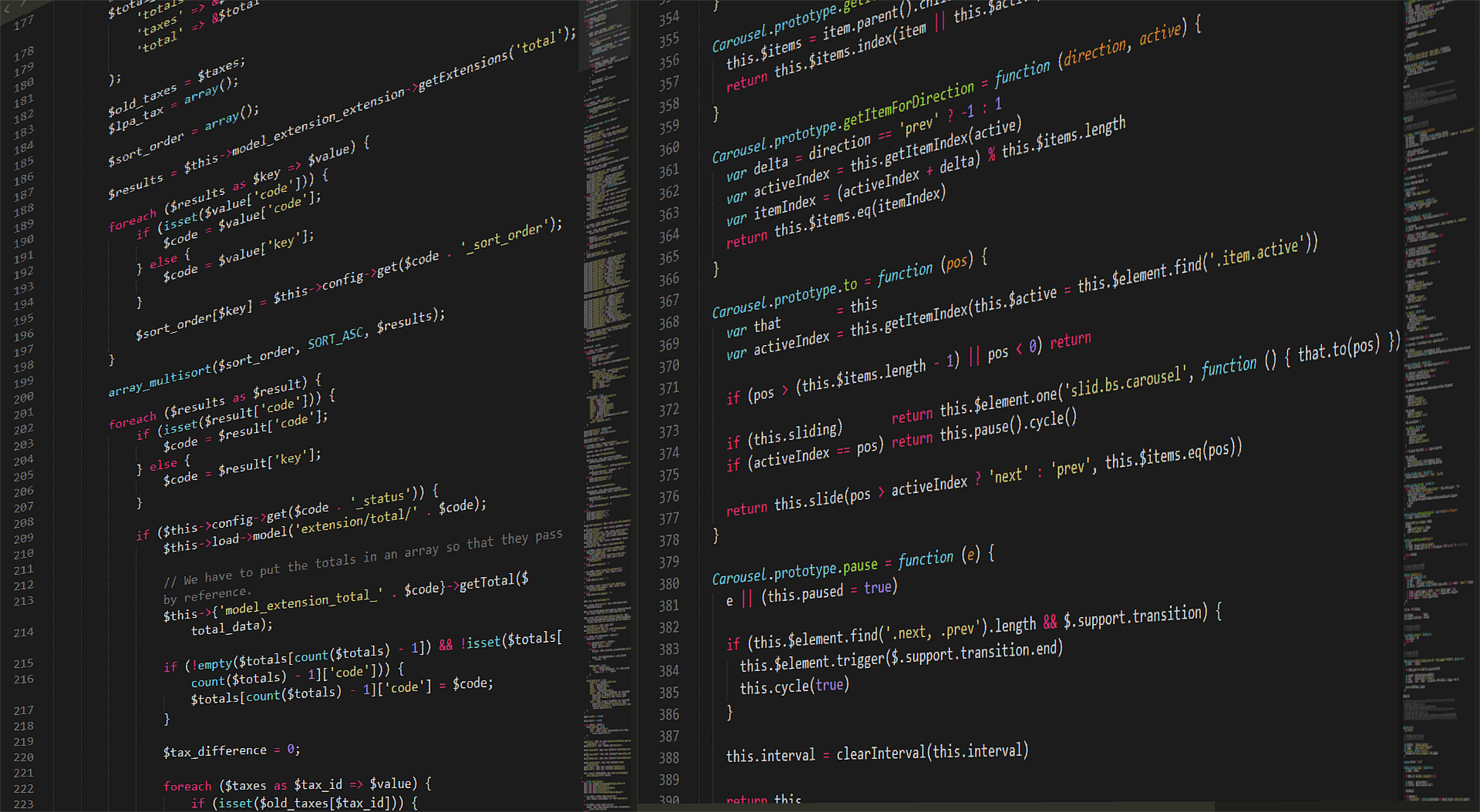Did you know that a significant percentage of aspiring developers believe they need advanced mathematics to excel in web development? This common misconception often deters many from even starting their learning journey.
The field of web development is rife with myths and misconceptions that can lead to confusion and poor decisions about entering this career.
Myth 1: Web development is only about coding
While coding is a fundamental aspect of web development, the field encompasses much more than just writing code. Web development is a multifaceted discipline involving various stages that ensure a website is not only functional but also user-friendly, aesthetically pleasing, and optimized for performance.
- UX/UI Design: The process of designing user interfaces that are intuitive and provide a pleasant user experience. This involves understanding the needs and behaviours of the users and creating an interface that guides them through the site efficiently.
- Testing: This includes various types of testing like functional testing, usability testing, and performance testing to ensure the website works as expected on different devices and under various conditions.
- Maintenance: Regular updates and fixes are necessary to keep the website running smoothly. This also includes updating content, fixing broken links, and ensuring that security measures are up to date.
Crucial Skills Involved in Web Development
- Problem-solving skills: Tackling bugs and implementing functional solutions to development challenges.
- Project management: Organizing, planning, and executing projects efficiently, often involving timeline management and coordination with other team members.
- Communication: Articulating ideas clearly and collaborating effectively with other developers, designers, and stakeholders.
- SEO knowledge: Understanding how to optimize websites for search engines to improve visibility and user engagement.
- Analytical skills: The ability to analyze user data and feedback to enhance website functionality and user experience.
Myth 2: Advanced mathematics is required for web development
The notion that one must be a math genius to excel in web development is a common misconception that can intimidate beginners. In reality, the level of math required for most web development tasks is quite basic. The bulk of web development involves logical thinking and problem-solving skills rather than advanced mathematical concepts.
Examples of Areas Where Complex Math Isn’t Necessary
- HTML and CSS: Creating and styling web pages with HTML and CSS requires no more than basic arithmetic, which is mostly used for calculating dimensions, padding, and margins.
- Content Management Systems: Utilizing platforms like WordPress or Joomla to build websites involves configuring settings and customizing themes, which does not require any advanced mathematical skills.
- UI/UX Design: While having a good eye for design is crucial, the mathematical demands are limited to basic geometry to understand spacing and layout, not complex calculations.
- JavaScript Functions: While some functions can be math-heavy, the majority of JavaScript used in web development is for creating interactive elements and handling data, which mostly requires logical operations.
Myth 3: Web development is not for those with no prior tech experience
The belief that a background in technology is essential to pursue a career in web development is a significant barrier that keeps many potential talents away from the field. However, the truth is that dedication, a willingness to learn, and access to the right resources are far more critical than having a prior tech background.
Success Stories of Developers from Non-Tech Backgrounds
- From Barista to Developer: Mark, a former coffee shop barista, learned to code through online courses. Within two years, he was hired as a front-end developer at a startup, contributing to major projects and continually enhancing his skills.
- Art Teacher Turned Developer: Emily, who spent a decade as a high school art teacher, switched to web development after attending a coding bootcamp. Her artistic skills proved invaluable in front-end design, and she now works for a digital marketing agency.
- Former Salesperson: Alex, who had a career in retail sales, pursued web development through part-time studies. His communication skills from his previous job helped him excel in client interactions and project management within his new tech role.
- Musician Coding Websites: Jake, a professional musician, started learning web development to create a website for his band. His project grew into a passion, leading him to a new career developing websites for other artists and music events.
Myth 4: AI will soon replace all web developers
The advent of artificial intelligence in various sectors has sparked concerns about the obsolescence of many professions, including web development. However, while AI can automate certain tasks, the creative and strategic roles of human web developers are irreplaceable. AI tools are designed to augment the capabilities of human developers, not replace them.
Areas Where AI Assists Rather Than Replaces Human Developers
- Automated Testing: AI can quickly run through thousands of tests to identify bugs and issues in code, speeding up the quality assurance process and allowing human developers to focus on solving more complex problems.
- Code Generation: Tools like GitHub Copilot suggest code snippets and help with routine coding tasks based on patterns and common practices, which can accelerate development but still require human oversight for implementation and customization.
- Design Consistency: AI can analyze existing website designs and ensure consistency across pages, which helps maintain brand identity and user experience but still needs a human touch for initial design and major revisions.
- Predictive Analytics: AI can predict user behaviour and suggest optimizations for user engagement and conversion rates, yet the strategic decision-making based on these predictions remains a distinctly human task.
Myth 5: Good developers are also expert designers
It's a common misconception that to be successful in web development, one must also have deep expertise in graphic design. While there's a significant overlap in the skills required for front-end development and web design, these roles typically require different specialized skills. Understanding how collaboration works within teams can help clarify the distinct contributions of developers and designers.
Skills That Developers and Designers Bring to a Project
- Technical Proficiency (Developers): Developers bring strong coding skills, understanding of web architectures, and problem-solving capabilities. They transform design concepts into functional websites using HTML, CSS, JavaScript, and other programming languages.
- Artistic Creativity (Designers): Designers focus on the visual aspects of a website, including layout, colour theory, typography, and user experience. They use tools like Adobe Photoshop, Sketch, and Figma to create the aesthetic elements that define the look and feel of the website.
- UX Focus (Both): Both developers and designers must understand user experience, but they approach it from different angles. Designers focus on usability and user engagement from a visual standpoint, while developers implement these designs in a way that ensures the site is intuitive and performs well.
- Collaborative Problem Solving: Effective web projects often require that developers and designers work closely together, communicating regularly to ensure that the final product meets both functional and aesthetic standards.
- Project Management: Both roles contribute to managing different aspects of a project. Developers might focus more on technical milestones, whereas designers might lead the creative timeline.
Myth 6: Web developers spend all their time in front of screens
It's a common belief that web developers are glued to their screens all day, every day. While screen time is undoubtedly a significant part of the job, the reality of web development includes a variety of tasks that can break up constant direct screen engagement.
Activities That Reduce Continuous Screen Time
- Planning and Brainstorming: Much of web development work happens away from the computer where developers plan projects, sketch out ideas, and brainstorm solutions.
- Meetings and Collaborations: Regular meetings to discuss progress, challenges, and coordination with team members mean time spent communicating rather than coding.
- Code Reviews: While this involves some screen time, it's also about discussion and collaboration, which can occur in group settings or through shared feedback tools.
- Learning and Research: Developers often spend time reading books, articles, or participating in workshops and seminars, which might not always require active screen interaction.
Myth 7: Web development is a young person's game
There is a widespread belief that the web development industry is exclusively suited for younger individuals, often stemming from the fast-paced nature of technology and the stereotype of tech-savvy youth. However, web development is a field that values skill, experience, and creativity, which are attributes that transcend age.
Reasons Why Web Development Is Age-Inclusive
- Diverse Perspectives: Older developers can bring a wealth of different experiences and perspectives that enhance problem-solving and creativity in project teams.
- Broad Skill Sets: With age often comes experience in various fields, which can be beneficial in understanding client needs and project management.
- Continual Learning: The field's emphasis on continual learning and adaptation is something that individuals of any age can engage with, as long as they have the interest and drive to stay updated.
- Mentorship Opportunities: More seasoned professionals can offer mentorship and guidance to younger colleagues, fostering a collaborative and inclusive workplace environment.
Myth 8: To be successful, you must be located in a major tech hub
There's a common perception that to build a successful career in web development, one needs to be based in major tech hubs like Silicon Valley, New York, or London. However, the global nature of technology and the rise of remote work have significantly democratized opportunities in web development, making location far less critical than it used to be.
Benefits of Web Development from Any Location
- Remote Work Opportunities: Many companies are open to remote work, especially after seeing the success of remote setups during the COVID-19 pandemic. This flexibility allows developers to work for companies around the globe without relocating.
- Access to Global Markets: As a web developer, you can reach clients from anywhere in the world, providing services such as website creation, app development, and more, all from your local setting.
- Online Learning and Networking: The wealth of online resources, from tutorials and courses to webinars and virtual conferences, ensures that anyone, anywhere, can learn and stay current with industry trends.
- Diverse Collaborations: Working remotely or from a non-tech hub location can bring diverse perspectives to projects, enhancing creativity and innovation.
Myth 9: Web developers must master a multitude of programming languages
A common misconception is that a successful web developer must be proficient in a vast array of programming languages. In truth, specializing in one or a few key languages can often be more beneficial, depending on the specific needs of projects or the focus of the developer's role.
Focusing on Key Languages: Advantages
- Depth Over Breadth: Deep knowledge of a single language and its ecosystem can lead to becoming an expert in that area, which is highly valued in the tech community.
- Efficiency and Productivity: Specializing allows developers to work more efficiently and produce higher quality code, as they become more familiar with the intricacies of the language.
- Better Problem Solving: In-depth understanding facilitates better debugging and problem-solving within projects, as developers are more aware of the nuances and potential pitfalls of the language.
- Career Specialization: Focusing on one language can help developers become sought-after experts in niche areas, such as data-intensive applications with Python or interactive front-ends with JavaScript.
Myth 10: You need a formal degree in computer science to become a web developer
It's a widespread belief that a traditional degree in computer science or a related field is necessary to pursue a career in web development. However, the industry is increasingly recognizing the value of diverse educational backgrounds and the importance of practical experience, which can also be gained through self-study, bootcamps, and online courses.
Alternatives to a Formal Degree That Can Lead to a Career in Web Development
- Coding Bootcamps: Intensive, practical programs that teach essential web development skills in a matter of months, focusing on hands-on learning and real-world projects.
- Online Courses and Tutorials: There are countless resources available that can help learn everything from HTML and CSS to advanced JavaScript and beyond.
- Self-Directed Learning: Many developers start their careers by building projects on their own, learning through trial and error, and utilizing free or paid resources online.
- Internships and Apprenticeships: Gaining practical experience through internships or apprenticeships can be incredibly valuable, providing on-the-job training and professional mentoring.
A Reality Check on Web Development Myths
Web development is not just about coding but encompasses a range of skills including design, testing, and project management. Anyone with determination can enter the world of web development, regardless of their previous tech experience.
The landscape of web development is ever-evolving, with new technologies, best practices, and tools emerging regularly. This dynamic nature makes continuous learning and staying updated not just beneficial but essential for anyone in the field. Whether you are a seasoned developer or a newcomer, understanding the realities of web development and dispelling myths is crucial. By embracing a culture of ongoing education and staying informed, you can adapt to changes more effectively and continue to thrive in your career.
Embracing the truth about web development and continuously updating your knowledge will not only make you a more competent professional but will also enhance your ability to contribute innovatively to this exciting field




